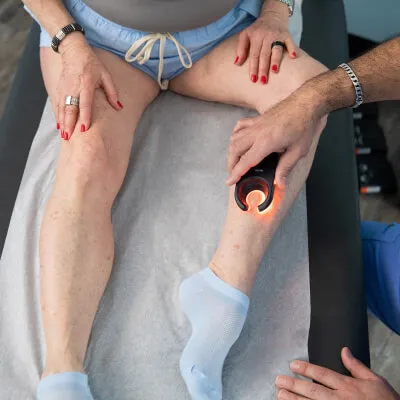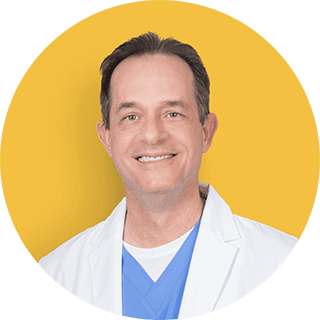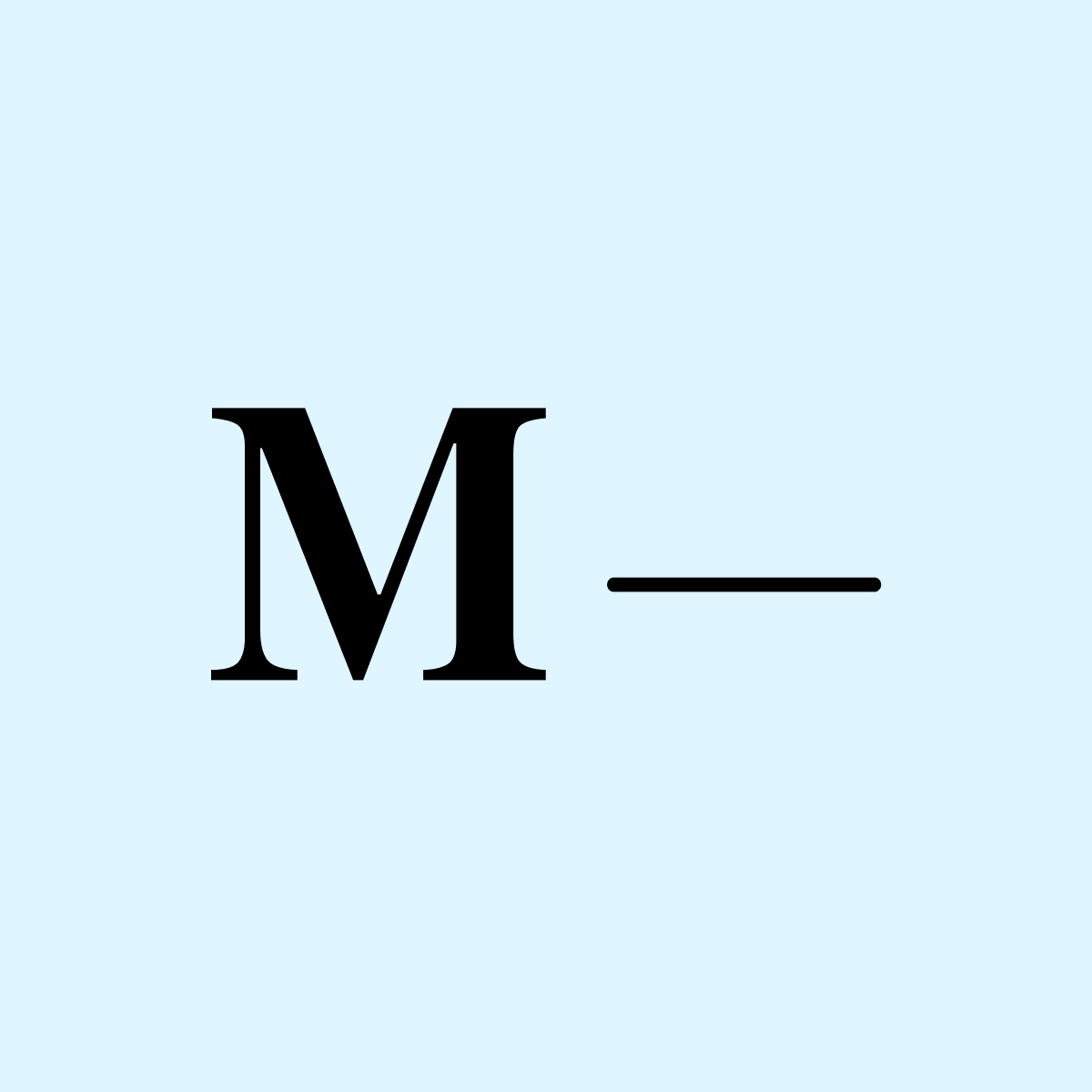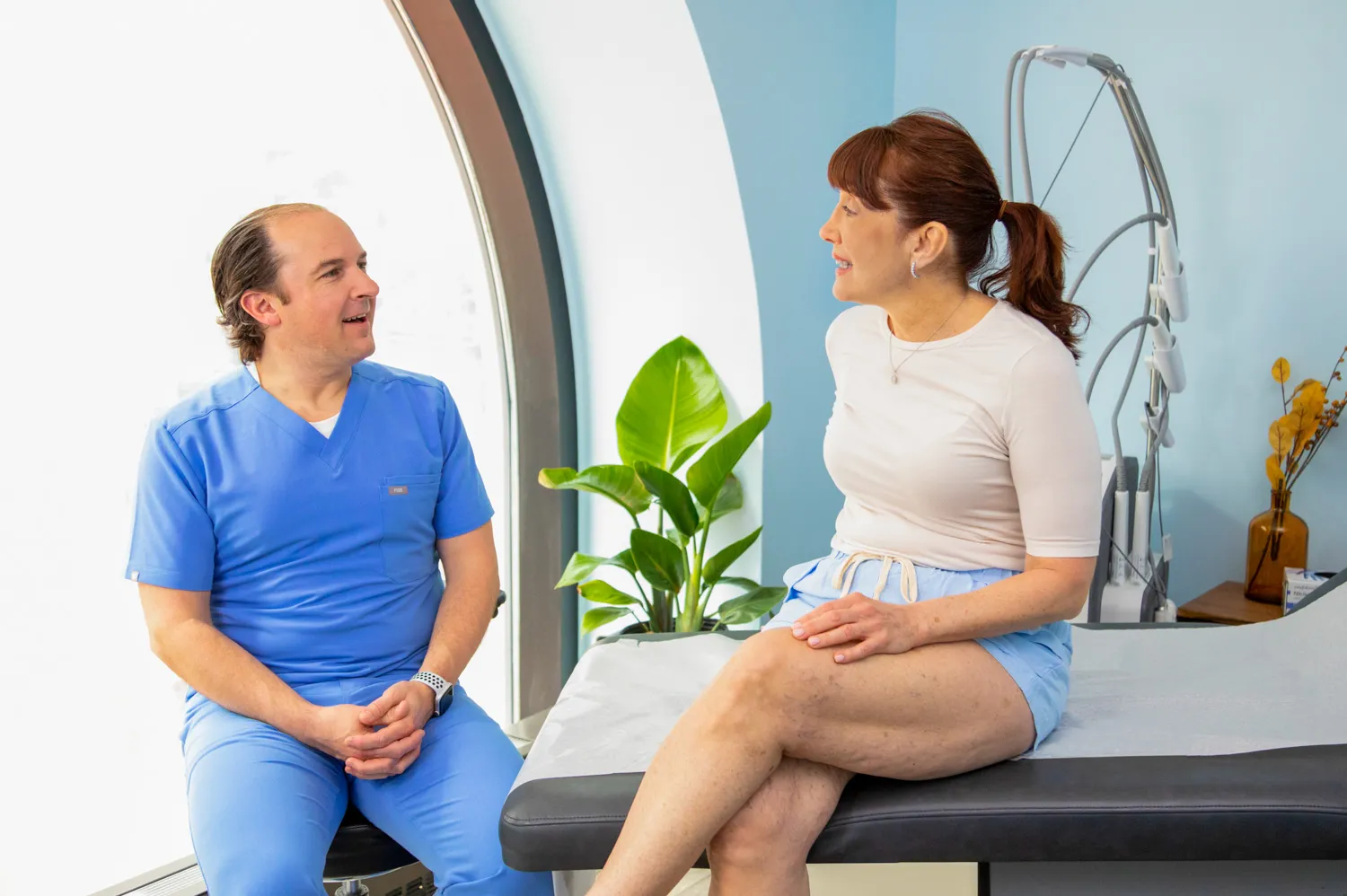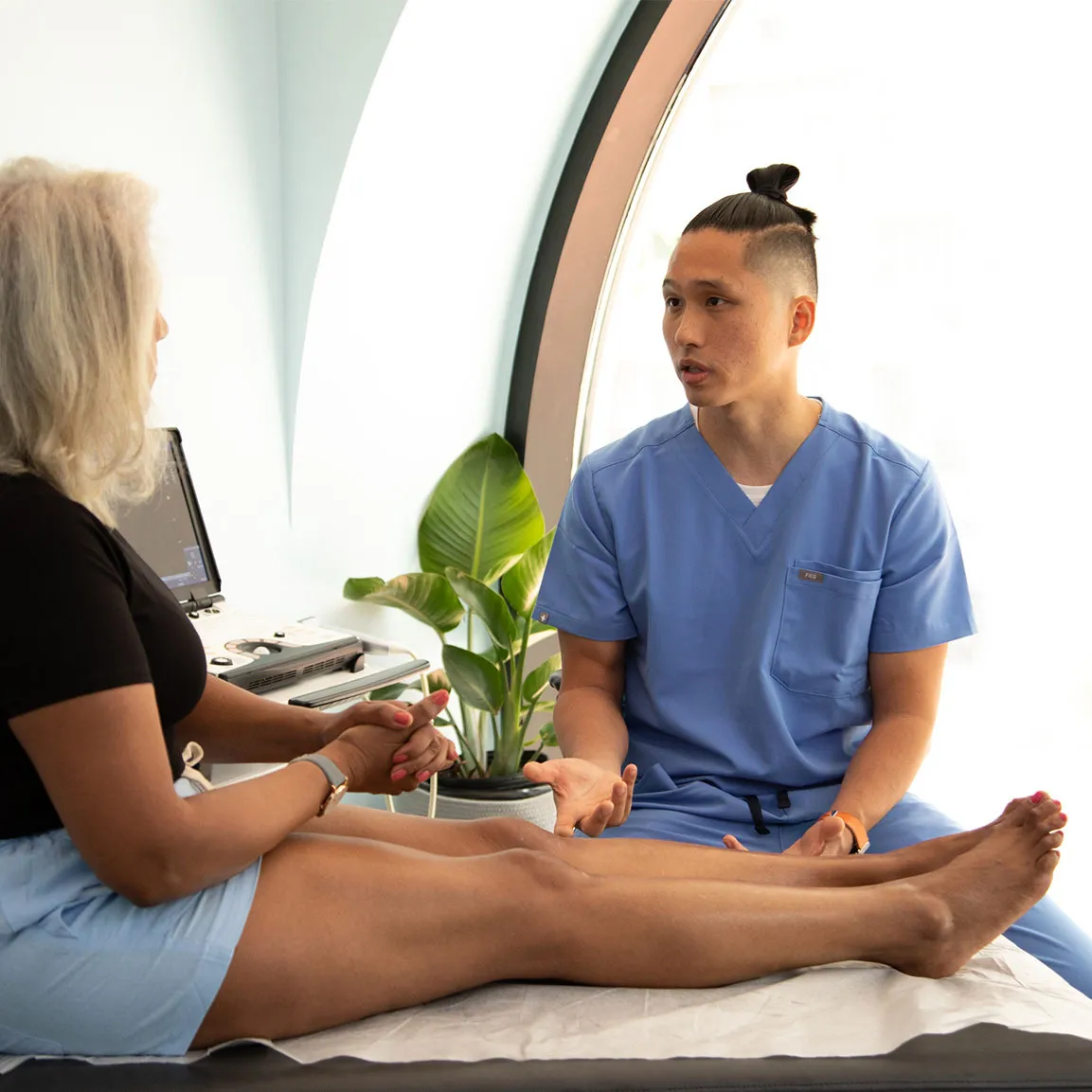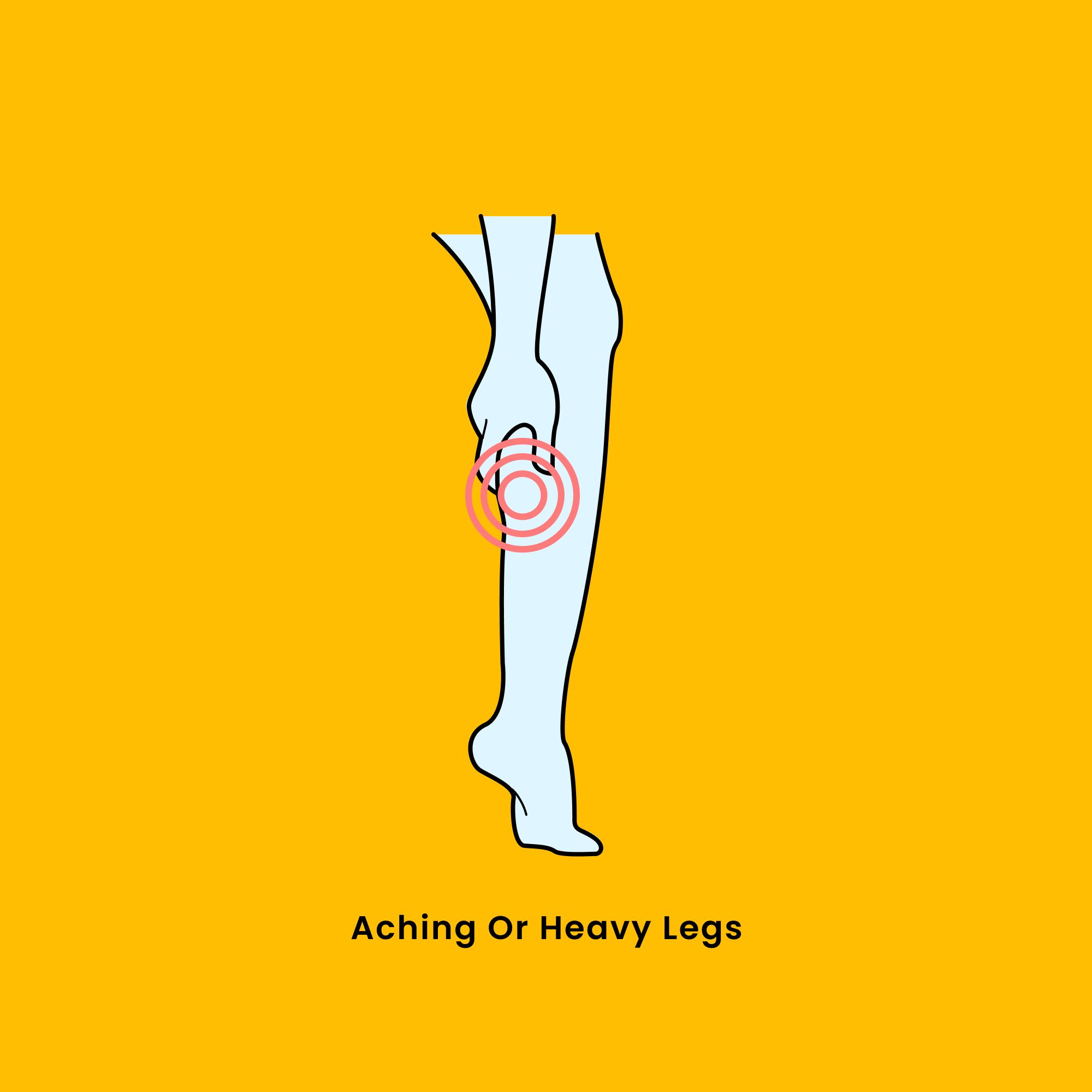
Aching, Heavy Legs
Aching legs and heavy legs are common symptoms of vein disease that may be accompanied by visible veins, or may be invisible — either way, this is caused by malfunctioning veins under the surface of the skin.
What do aching, heavy legs feel like?
Aching or heavy legs are symptoms of vein disease that are most often noticed at the end of the day during periods of rest. Legs feel sore or heavier than usual, or as if muscles have been exercised even when they have not experienced strain.
Aching and heavy legs are not visible symptoms, so discomfort and pain is often written off as insignificant or just a “normal sign of aging.” Aching legs and heaviness, when isolated from an obvious cause like exercise, can be indicative of varicosities, malfunctioning valves, or other venous concerns.
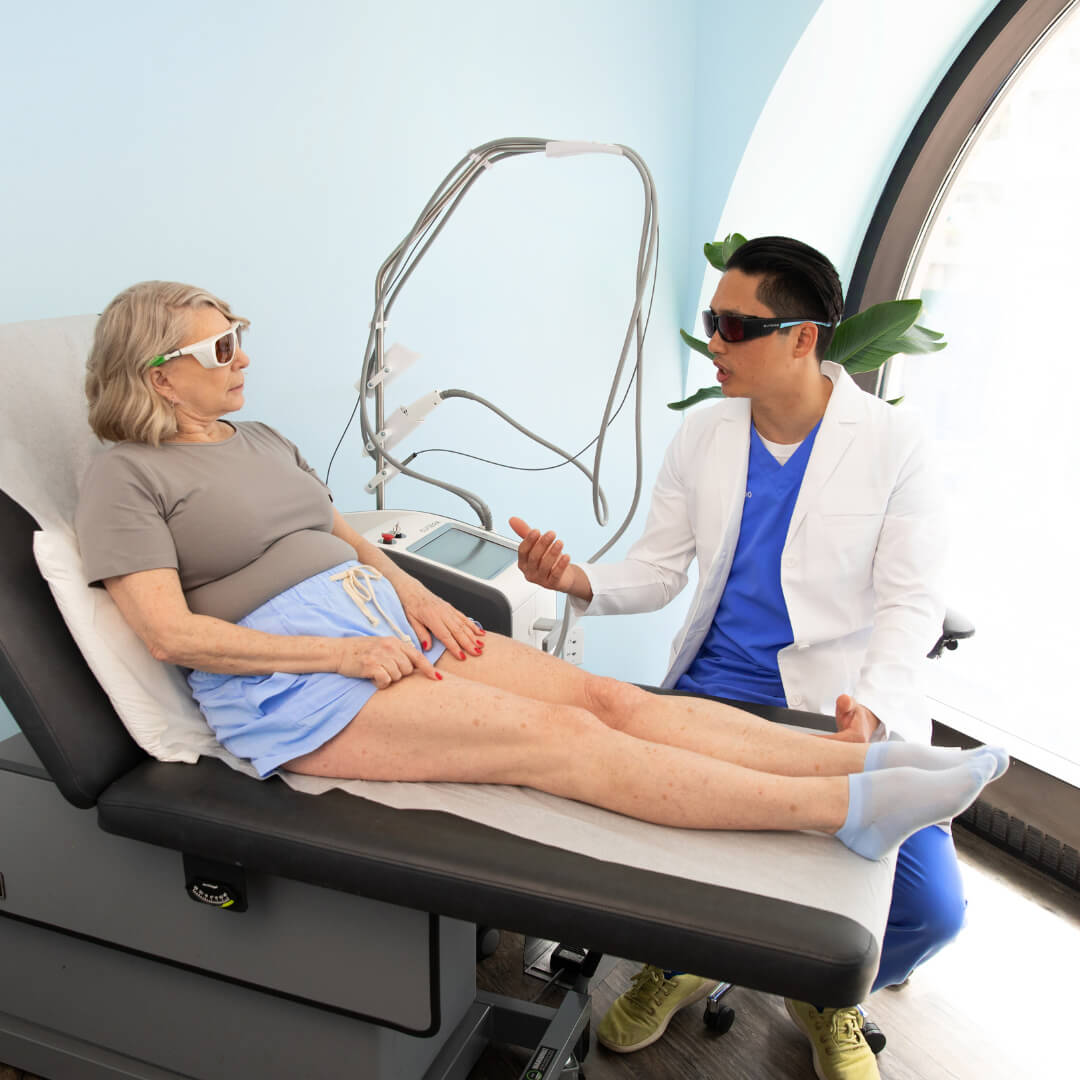
What causes aching or heavy legs?
Heavy, aching legs can be a sign of poor circulation or venous insufficiency. Common causes include prolonged standing, obesity, pregnancy, and varicose veins. This sensation may also indicate more serious conditions like deep vein thrombosis or peripheral artery disease. If persistent or accompanied by swelling, consult a healthcare professional for proper diagnosis and treatment.
Valves inside the veins weaken when under abnormal pressure (from weight, the natural effects of gravity over time, or restricted blood flow), and blood can flow backward. Veins are a one-way street, and are not designed to have blood pooling or flowing against the current. A buildup of blood in the vein can stretch vein walls, causing uncomfortable, painful varicose veins and related symptoms.
Aching legs and heaviness in the legs are often a sign of an underlying medical condition called venous insufficiency, which requires medical treatment to fully resolve. Venous insufficiency is a progressive disease and should be evaluated by a board-certified vein specialist to determine whether vein treatment is recommended.
Are aching, heavy legs dangerous?
As an early sign of weakened valves or poor circulation, aching or heaviness in the legs should not be ignored. Vein disease is progressive. Leaving concerns unchecked could lead to worsening symptoms or the development of new, more uncomfortable symptoms over time.
If you experience pain or unusual discomfort in the legs (especially if you cannot connect the pain to a specific recent strenuous activity or orthopedic issue) you are likely also dealing with the beginnings of varicose veins or weakened valves.
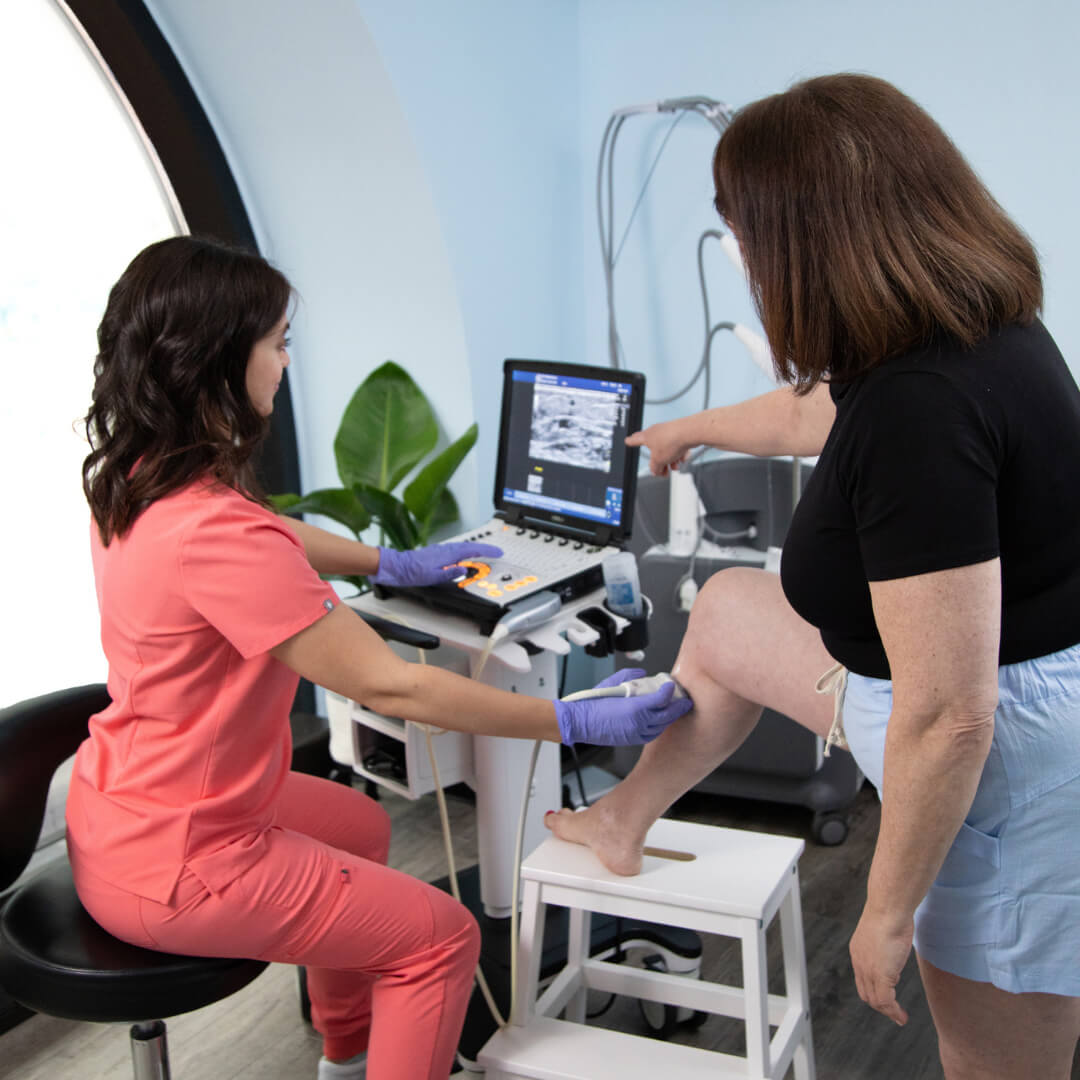
What are the risk factors for heavy and aching legs?
Because they may be a genetic or hereditary issue, there may not always be a clear “risk” that leads to painful varicose veins. However, there are some factors that make a person more likely to develop aching varicose veins.
Do you ...
- Smoke?
- Have children?
- Know a family member with vein disease (varicose veins)?
- Take hormonal birth control?
- Work a job that requires long hours of sitting or standing?
- Lead a sedentary lifestyle?
Are you ...
- A pregnant or postpartum woman?
- Over the age of 40?
- Diagnosed as overweight?
Women are more likely to develop vein disease than men, as fluctuations or spikes of the estrogen hormone are linked to vein health. Family history also plays a significant role in the appearance of venous insufficiency and all related symptoms. Most people who have varicose veins or discomfort related to vein disease (such as heavy legs) also have a family member with a form of vein disease.
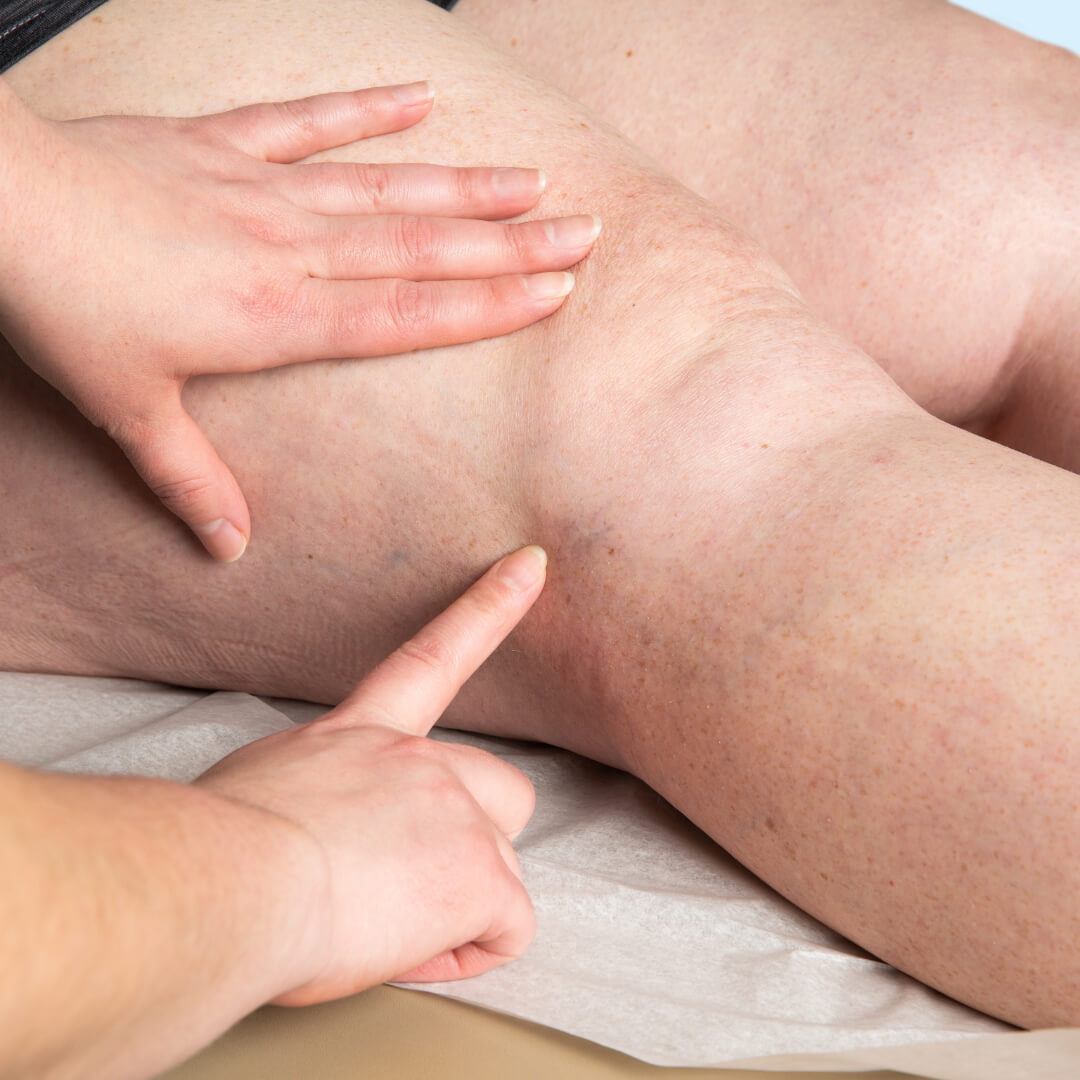
What can you do to treat and prevent aching or heavy legs?
Because the presence of pain and discomfort in the legs may be a sign of a greater medical issues beyond what can be seen by the naked eye, such as deep varicose veins or the early stages of chronic venous insufficiency, we always recommend consulting with a board-certified vein doctor or vein specialist when you notice changes in your legs. Vein disease is progressive, which means it worsens over time if left untreated, and the only way to diagnose vein disease is to be evaluated by professionals. Give us a call! We’re here to help.
For more information on vein disease, book a free evaluation at one of our accredited vein clinics nearest you. We can be reached at 866-629-9848 with any questions.
Aching or Heavy Legs Myth Busting Q&A
No! While vein disease is more prevalent in those over 40, pain is never a normal part of aging. Time takes a toll on the body, and vein walls can weaken with age, but varicose veins and related discomfort from painful symptoms are not found in the same category as the development of wrinkles or gray hair. Aching and heavy legs are not a normal part of aging, nor do you have to endure pain that develops. Varicose vein treatments which will alleviate this aching feeling are covered by insurance, and treatment is minimally invasive.
If your painful symptoms are unrelated to excessive strain — such as moderate- or high-impact exercise, pulled muscles, or recent injury — and especially if you find yourself managing other symptoms of varicose veins, topical creams or over-the-counter remedies will not serve you in the long run. Damaged veins are buried deep beneath the skin, and cannot be penetrated by ointments, patches, or heating pads. Cosmetic creams and topical painkillers will not address the root cause of your pain, which is a medical condition known as chronic venous insufficiency. FDA-approved vein treatments from board-certified vein doctors can treat concerns beneath the surface of the skin with ease, precision, and without pain.
Unfortunately, no. Vein disease is a progressive medical issue that worsens over time if left untreated. While poor circulation (a leading cause of pain, discomfort, and visible veins) can benefit from rest, leg elevation, compression socks, and low-impact exercises, vein disease cannot be remedied without treatment from board-certified vein specialists. To avoid painful symptoms progressing, or the development of new symptoms, we recommend consulting with a vein doctor.
When treating an unhealthy vein, your vein specialist will gently and efficiently close the diseased vein to redirect blood flow through your healthy veins. Once treated, this unhealthy vein will be gently reabsorbed by the body and you will not have to worry about that problem vein again. However, other untreated healthy veins could eventually develop varicosities due to lifestyle choices, genetics, age, and other risk factors, so it is best to follow your vein doctor’s after-care instructions to maintain a healthy lifestyle after treatment.
Chronic venous insufficiency does progress when left untreated. It’s important to keep an eye on your legs and check in with your body regularly to evaluate if you are experiencing any out-of-the-ordinary symptoms, visible or invisible. If you have concerns about the veins in your legs, our team of highly trained, board-certified vein specialists are here to help.
How do Vein Treatments Work?
Vein treatments work by closing off unhealthy veins, just in different ways! Once closed, blood flow naturally reroutes through neighboring healthy veins.
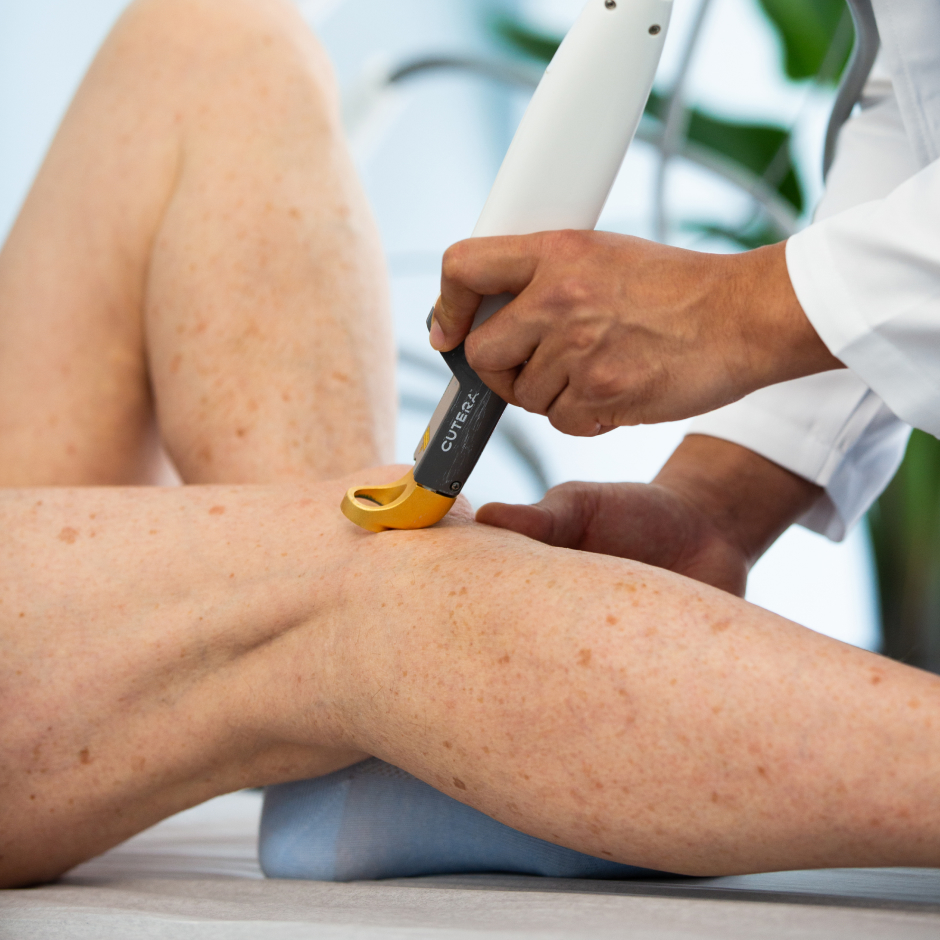

Aching, Heavy Legs Treatments
- State-of-the-Art
- Ultrasound Guided
- Less Than 30 Minutes
- FDA-Approved
- Minimally Invasive
- Minimal Downtime
Let’s talk about you
What are your veins like?
Get a snapshot of your vein health in just a few clicks.


